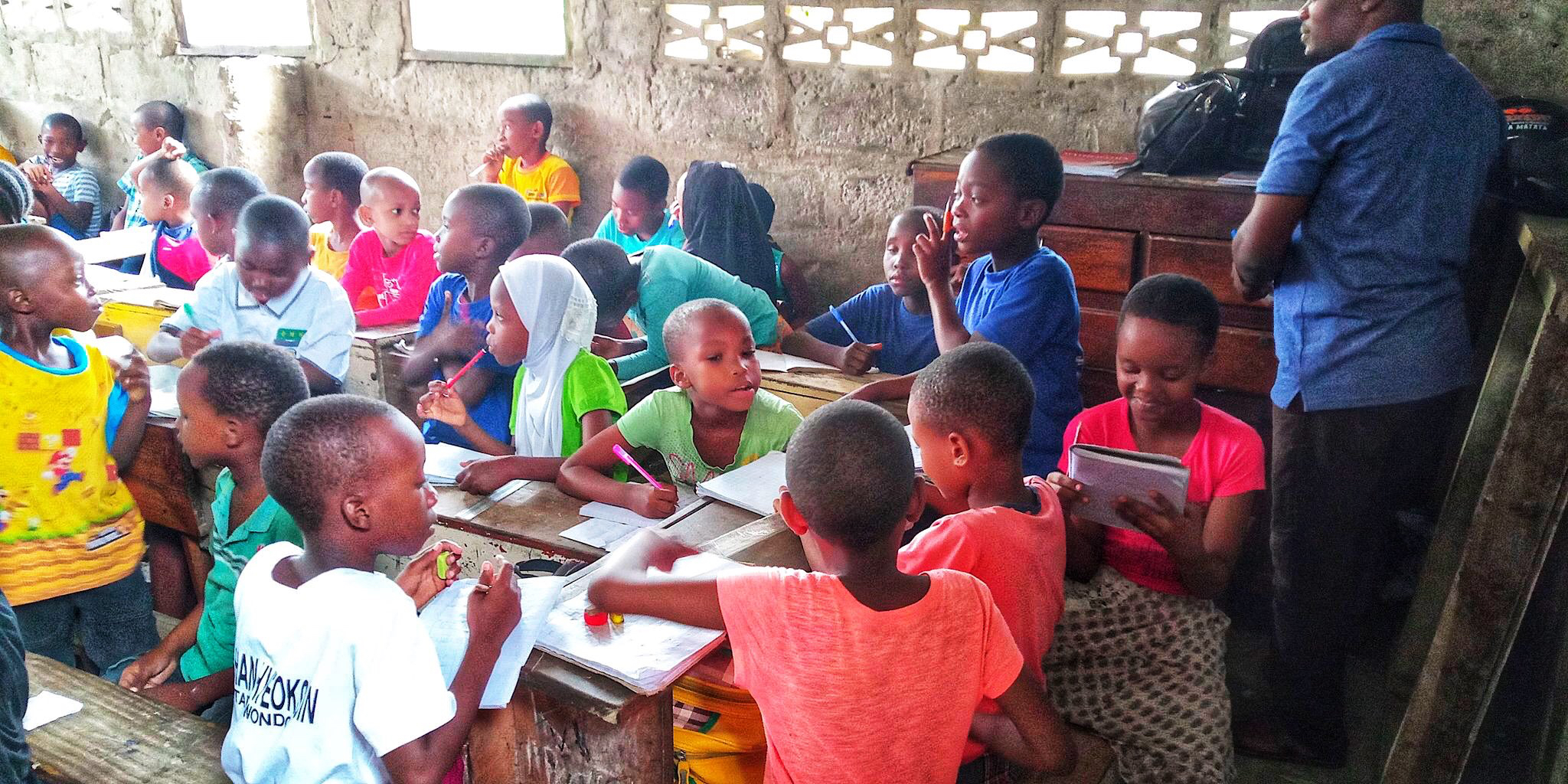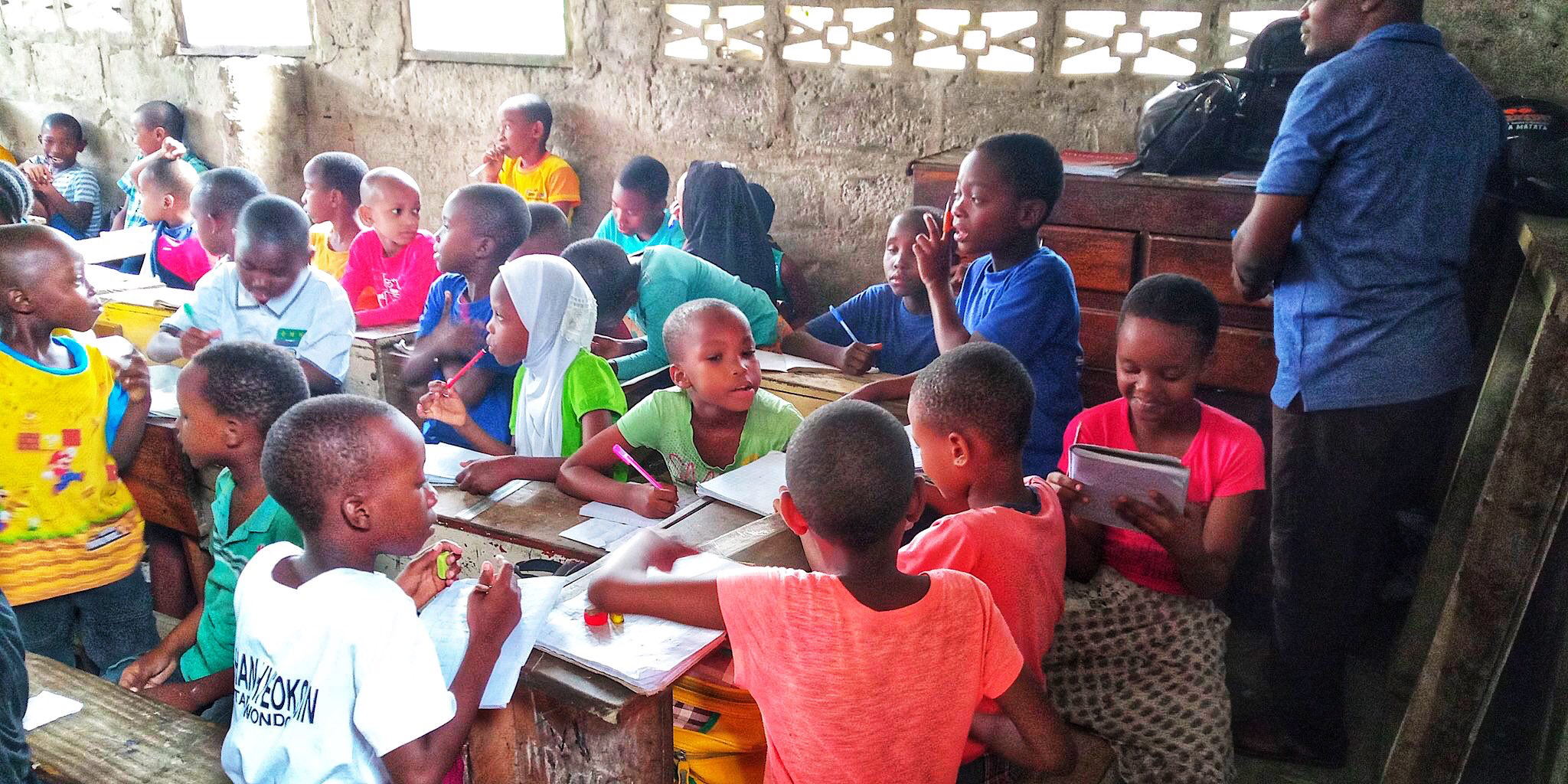How Soma facilitated a project where children are creating openly licensed reading material for other children


Caption: We discovered some children were good illustrators and storytellers; others were good observers. The children were improving their skills from one day to the next - Patrick Joseph Gongwe, HK Learning Centre
I’m fascinated by the simple notion of children authoring stories for other children to read and enjoy – it makes so much sense. In its project, Soma Book Café, went one step further. The four children whose stories were selected by judges consisting of other children and adults worked with published authors, illustrators, designers, and other book professionals to turn their ideas and words into a professional product in print and online.
Putting these ideas into practise proved to be a lot more complex than envisaged; delivering thought-provoking learnings to the adults who took on the challenge.
These adults are the incredible people behind Soma, which means read or learn in Kiswahili, and is an apt name for an organization that strongly encourages both.
Based in Dar Es Salaam, Tanzania, the organization: Readership for Learning and Development – Soma, is so much more than the Soma Book Cafe, as described on their Instagram profile, it’s an alternative urban space for leisure, culture and learning – for adults and children alike.
The children’s programme hosted at the Cafe, which runs every Saturday, is called Watoto na Vitabu, and its objective is as follows:
…to instil a culture of reading and writing in children through creative and participatory involvement in storytelling. This objective reflects our mission, to ‘become an innovative co-creation hub for grooming the next generation of storytellers’.
Recently this objective was realised with the creation of four books, authored by children, under the auspices of Soma.
To document this leg of the project, Demere Kitunga, the Chief Executive Officer, authored a case study detailing ‘The Experience of Soma Book Café in Facilitating Children’s Creativity’.
The full case study can be found here on the Early Learning Resource Network website and here at the Soma Book Café website.
In February 2019, Neil Butcher and Associates (NBA) provided Soma with support to undertake a research and writing process with children on a pilot basis, and to generate insights and data on early literacy content creation with and for children.
Kitunga’s case study provides background on the organization and places it in the context of early education in Tanzania and on the African continent; as well as giving considered insights into the challenges presented in running a pilot project such as this one; the positive outcomes of the project; and a whole lot of things that came up in between, including COVID-19.
Kitunga and Soma took it upon themselves to tick two boxes with this project:
- To develop a model multimedia storytelling hub for children, with tangible outputs, that is replicable.
- To learn and document how children interact with stories, as consumers and producers.
Ultimately, these goals aligned with NBA initiatives, in other regions, whose outcomes demonstrate ‘successful experimentation with and documentation of projects on content creation, use, and quality of open licensed storybooks in Africa, to develop and test innovative creation and usage models in early literacy.’
As a teacher, the section of the report I found particularly enlightening, looks at adult interactions with children and their facilitation of the creative process. How initial efforts had to be assessed and course-corrected before the children found their groove as story-tellers; and how traditional teaching methods can hamper the creative process.
The comments of Patrick Joseph Gongwe, head of the HK Learning Centre, particularly resonated with me:
We worked together to impart various skills through competitions and giving prizes. It enabled us to figure out what children are able to do without being taught. We discovered that some children in my school were talented. Ultimately, we would organise internal competitions and give prizes to winners to encourage those who found it hard or believed they were incapable. We discovered some children were good illustrators and storytellers; others were good observers. The children were improving their skills from one day to the next.
I was also intrigued by how steadfast the children were when it came to the development of their stories, how far they were willing to go to defend their creativity and ideas, and how expansive these ideas appeared to be when queried.
In addition to this, the research guide developed by Soma, to direct the team of facilitators is of interest, as it was truly an iterative process – being tweaked and updated as feedback and experiences were analysed. Although the guide is not publicly available, relevant sections are fully discussed in the case study.
The book titles and their authors are as follows:
- The Lonely Frog / Chura Mpweke by Nakiete Mlaki
- The Poor Lady by Larry Semiono
- Mbuguma na Nasiru by Sharifa Shemputa
These titles form the basis for Soma’s children’s book series: Kalamu Ndogo (Little Scribes in English). More titles will be added to the series, as they are produced.
In summary, the project achieved the following:
- Soma worked with children from diverse backgrounds. They came from different neighborhoods in Dar es Salaam and different socio-economic environments. They attend both public and private schools. Some are enrolled in Kiswahili-language schools. Others are in English-language schools
- Four stories were produced by four young authors, two in English and two in Kiswahili. Unfortunately, one child’s parent withdrew her child at the last moment; but the book is ready to be published if the mother changes her mind.
- Three of these books have been published online, with one of them translated and this version also published online.
- A print run of 500 copies was done for one of the books.
- The entire process was documented in video format.
- Soma is using a CC BY licence for the digital versions of the books. They will also be uploaded to StoryWeaver – the award-winning children’s storybook platform.
Watch this beautifully narrated and illustrated version of The Lonely Frog, that has been published to Youtube:




